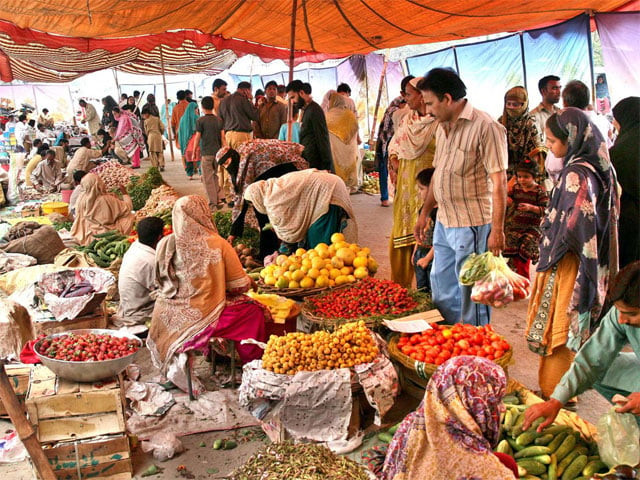Brace yourself for inflation as the rupee takes a hit
Japanese car maker, cooking oil manufacturers among the first to increase prices

Japanese car maker, cooking oil manufacturers among the first to increase prices. PHOTO: REUTERS
Already, the economy has started to feel the pinch, though this is just the beginning.
Products ranging from basic necessities to luxurious items have started to become expensive. This will mount inflationary pressure on the economy and convince authorities to increase the key interest rate sooner than later as a remedy. Bank borrowing will become expensive, and purchasing power will reduce.
Imported products and the ones made of imported raw material would make a larger contribution in fuelling inflation figures. Prices of pure local products would also go up due to the anticipated increase in cost of transportation of goods from factories to the markets. Oil in rupee terms will become expensive, adding to the pressure already being witnessed in petroleum prices.
Inflation in Lahore highest among Pakistan's major cities
Earlier this week, the State Bank of Pakistan (SBP) allowed the rupee to lose 4.4% against the US dollar, pushing the currency to 115.40 in the inter-bank market. The move comes after the rupee also lost 5% in December 2017, taking the overall plunge to 9.4%.
“A 1% devaluation leads to a 0.3% incremental CPI (inflation),” said Khurram Schehzad, a leading analyst.
Among the first ones to make their products expensive are the makers of Toyota Corolla in Pakistan, the Indus Motor Company, and the manufacturers of cooking oil, which remains a leading kitchen item. Pak Suzuki had already hiked its prices, and Honda is likely to follow suit. Cement prices are rumoured to increase already.
Other industries, which say the devaluation will production costlier, include fuel oil, textiles, medicines, tea, spices, pulses, mobile phones, dry fruits among others.
Indus Motor Company increased car prices for the second time since December. This time, it increased prices in range of Rs75,000-300,000.
One ghee and cooking oil manufacturer said it increased price by Rs2 per kilogram/litre on the very next day of the recent rupee devaluation. “We (the maker of Shama ghee/cooking oil) would further increase prices by another Rs3 per kilogram/litre to pass on the impact of the devaluation to end consumers,” said Shaikh Amjad Rasheed, the company owner.
Pakistan has a ghee/cooking oil market of 3 million tons, but heavily depends on imports. Around 90% of the consumption is met through imports, he said.
A commercial tea importer and a former member of the Pakistan Tea Association, Moinuddin Paracha, said it has also increased tea price by Rs5-6 per kilogram in the aftermath of the December devaluation. It is expected that another increase of a similar value will be made in the days to come.
Inflation spikes 4.6% in Dec 2017, hits 8-month high
Pakistan consumes heavy amounts of tea. Unfortunately, the country meets 70-75% of its needs through commercial imports mainly from Africa while the remaining is met through smuggling due to the heavy taxation factor.
An official at Pakistan State Oil (PSO) added in the case of rupee’s movement there is a lagged pricing effect of around three months - time to receive imported fuel on seaports and supply it to retail consumers from the time they invite tenders. Similar is the case with imported Re-gasified Liquefied Natural Gas (RLNG).
While prices of petroleum products gas/RLNG largely remain regulated, it remains the government’s prerogative to pass on the impact of devaluation to end consumers or absorb the financial hit. So far, the government is, however, mostly seen passing on the impact since August 2017.
Textiles would also become expensive as the country produces less-than-required cotton to meet industry demand. The deficit is met through imports.
Medicine manufacturing industry also heavily depends on imported raw material. The devaluation has also made such imports expensive. However, the industry needs the government’s permission to increase prices, which remains a tough job for industry officials.
The inflationary pressure is expected to convince the State Bank of Pakistan to increase the key interest rate. Experts see a minimum 25 basis points surge in the rate to 6.25% in its next monetary policy due next week.
Published in The Express Tribune, March 24th, 2018.
Like Business on Facebook, follow @TribuneBiz on Twitter to stay informed and join in the conversation.



















COMMENTS
Comments are moderated and generally will be posted if they are on-topic and not abusive.
For more information, please see our Comments FAQ